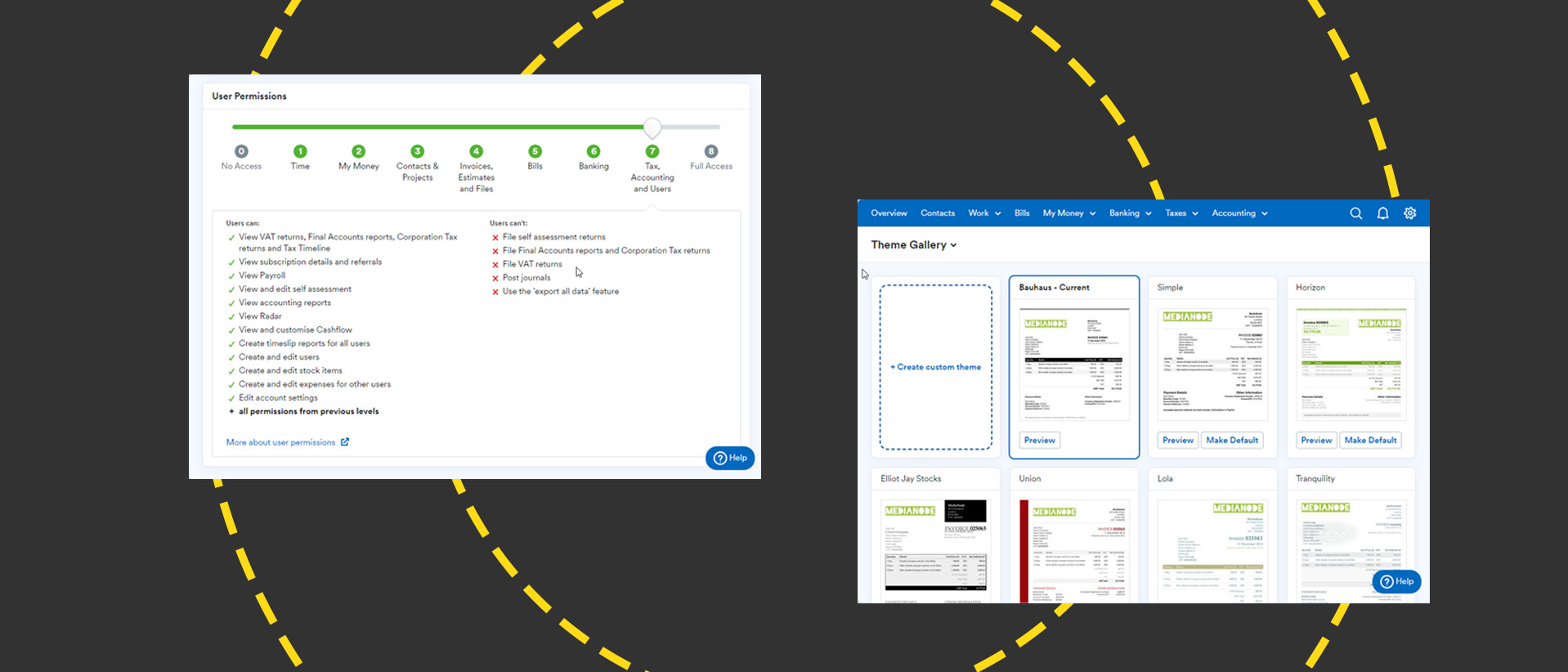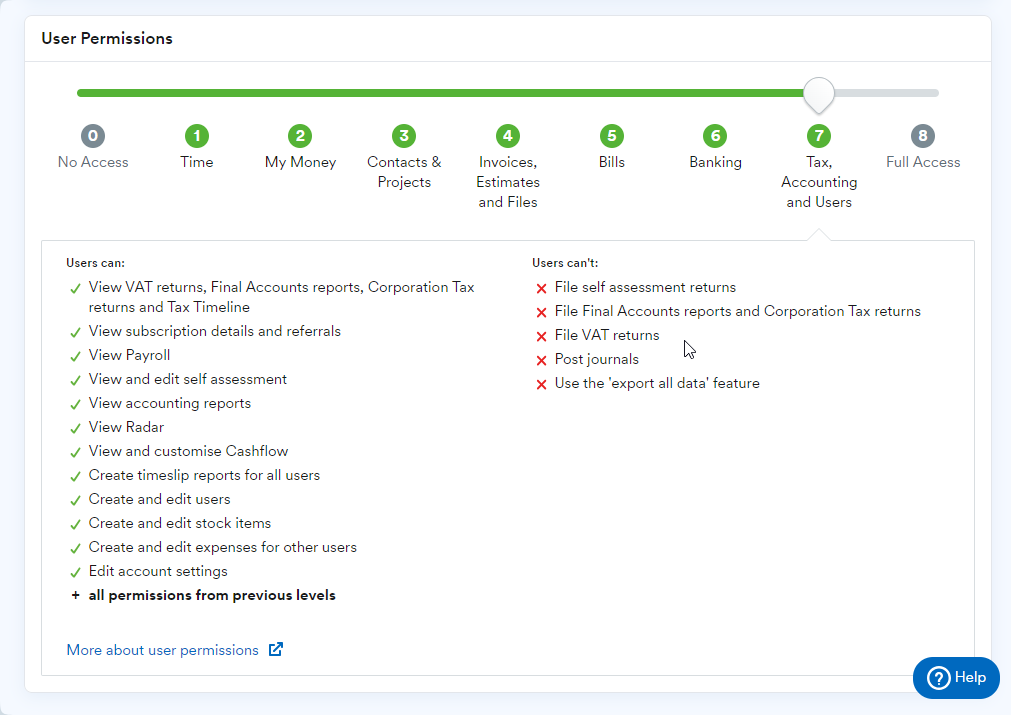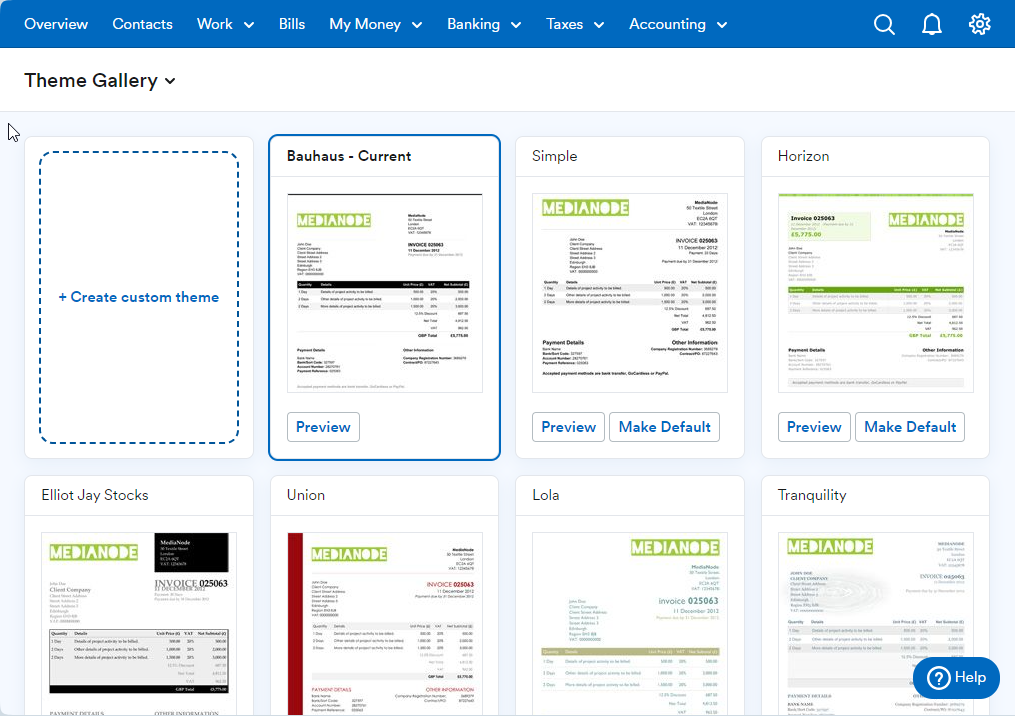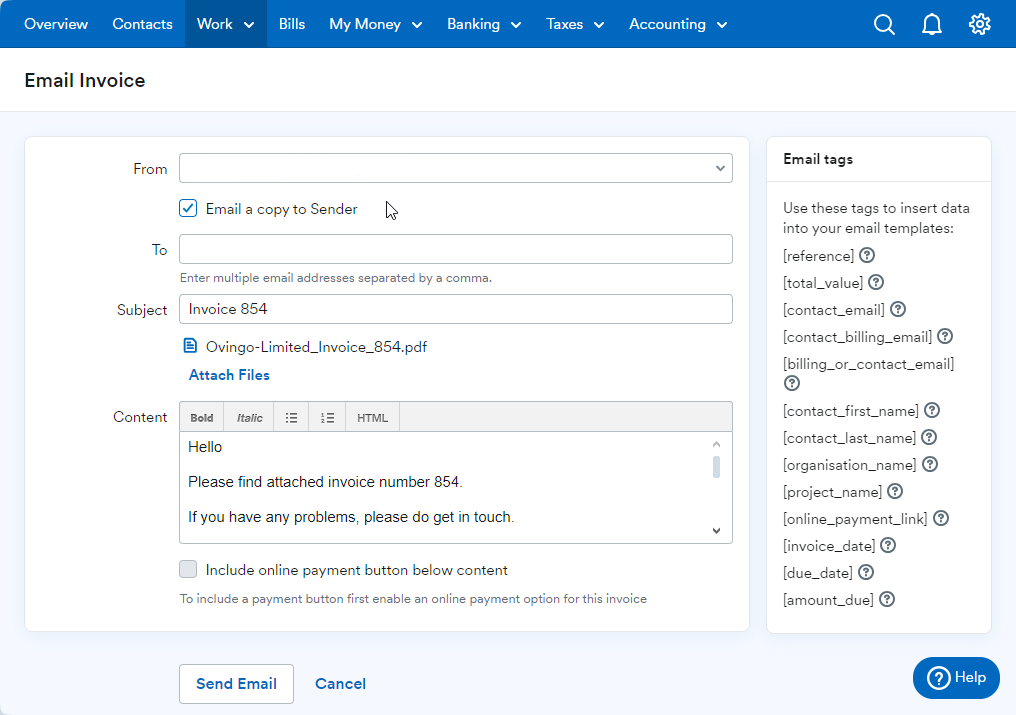FreeAgent review: Fully featured yet easy-to-use cloud accounting platform
A keenly-priced timesaver that will shine if your business lacks an accounts department

-
+
Easy to use
-
+
Doesn't require knowledge of accounting
-
+
Open banking integration
-
+
MTD compliant
-
+
Direct RTI submissions to HMRC
-
+
Flexible permissions controls
-
-
Bundled Smart Capture feature limited to 10 receipts per month
FreeAgent went from startup to PLC in less than a decade and was snapped up by the Royal Bank of Scotland Group (now NatWest Group) two years later. It's used by more than 150,000 small businesses and has racked up dozens of trophies for best accounting or bookkeeping software.
Based in Edinburgh, the cloud accounting platform has distinct offerings for limited companies, partnerships and LLPs, sole traders, and, most recently, landlords. Here, we're looking primarily at the limited company product.
FreeAgent review: Price and features
Whichever tier you choose, paying for a year upfront gets you twelve months for the price of ten. That reduces the limited company price from £29 a month to £290 a year. Partnerships and LLPs will need to budget £24/£240, sole traders £19/£190, and landlords £10/£100. Those prices exclude VAT and apply from year two. First-year prices are discounted by 50%.
READ MORE

Every tier supports invoicing, estimates, expenses, time tracking, and VAT filing (it's recognized by HMRC for submitting MTD-compliant returns). There's no additional charge for payroll on the limited company, partnership/LLP, or sole trader plans. You can scan up to 10 receipts a month from which FreeAgent will draw out relevant details using its smart capture tool, but with an additional charge of £5 a month (plus VAT) to remove the cap, this feels more like an introductory offer.
The differences between the tiers are few and far between. However, the limited company, sole trader, partnerships and LLP plans lack tools for tracking property income and costs, while the landlord plan misses out on payroll. There's no self-assessment tool for partnership/LLP users, and only the limited company tier, reviewed here, can file end-of-year returns.
The final differentiator is Amazon integration, which is currently free on all but the landlord plan, where it's missing. This lets you draw in data from a linked Amazon UK seller account to track sales in real-time. From 30 April, this feature will attract a monthly fee of £6 plus VAT on the three tiers where it's currently available.
However, if you have a business account with NatWest, Royal Bank of Scotland, or Ulster Bank, you can sign up for any FreeAgent tier for free. The same is true if you set up an account with Mettle, NatWest's account for sole traders and limited companies with two or fewer owners, and make at least one transaction a month. That transaction could be as simple as a standing order from your Mettle account to a business account you hold elsewhere. It strikes us that there would be very few businesses that couldn't therefore sign up for FreeAgent for nothing.
Sign up today and you will receive a free copy of our Future Focus 2025 report - the leading guidance on AI, cybersecurity and other IT challenges as per 700+ senior executives
FreeAgent review: getting started
FreeAgent's interface is refreshingly simple. You don't need to understand bookkeeping conventions, and the only place you'll encounter anything close to double-entry is when tackling journals (which we'd recommend leaving to an accountant if you're unsure what you're doing). There's no need to venture beyond the basics either if you don't need to: you could spend years recording your accounts through the system without ever doing more than issuing invoices, recording payments, and reconciling bank transactions.

Aside from these key features, it registers contacts so you don't need to manually type them onto each invoice, can corral multiple jobs into projects, will issue estimates, track expenses, calculate your likely tax bill, and amalgamate balances across multiple accounts to give you a live overview of your business's financial health.
You can import contacts in vCard format or from Outlook, Google, Apple, or FreshBooks, and export them should you ever need to switch services. You can also export all of your FreeAgent data in Excel format if you want to keep a periodic local backup.
Recognizing that you might be migrating from an alternative platform – or upgrading from a spreadsheet-based system – you can import existing tax data, and of course set key variables, like your accounting dates, company number, and registered address. You can also define a price list for commonly sold products or services to simplify billing at a later date; define your own categories for sales, income, expenses, and so on; and, if applicable, set it up to work with the construction industry scheme for subcontractors to deduct money from invoices sent to contractors for submission to HMRC.
The dashboard presents key metrics from across your business in a clear and easily understood grid, with cash flow, profit and loss, and your invoice timeline in obvious boxes. There's also a handy notification bell, which alerts you to matters that need your attention and, on the tab behind this, FreeAgent's Radar for general information and longer-term matters, like an upcoming end-of-year.
FreeAgent review: Billing tools
Many features can be personalized to suit your business, like the logo on your stationery and the layout of your invoices. There are eight tweakable layouts to choose from but if you want to – and if you have the skills – you can define your own using CSS. When you send an invoice, it's attached to your covering email as a PDF, and you can tweak the email, too, using placeholders for common variables like due date, project names, and your contact's first or last name. If you prefer, you can write the covering email from scratch before dispatching it, or download the invoice to print if more appropriate.

Mark an invoice as sent and FreeAgent will track when it's due, late, or paid; it can send automatic follow-ups after a set point, and you can issue reminders yourself. When a matching transaction appears in your linked bank feed, it will tentatively tie it to the invoice but not commit it to your accounts until you've checked and signed it off. It's not a problem if clients settle multiple invoices with a single payment, either: just feed it the relevant invoice numbers and FreeAgent will split the lump payment as appropriate.
If any of your clients prefer not to pay by transfer (or cash that you subsequently pay into your account so it appears in the bank feed), the platform integrates directly with GoCardless, PayPal, or Stripe, subject to you having the necessary accounts. Each of these levies separate fees from your ongoing FreeAgent charge. These start at 1% + 20p per transaction with GoCardless, 1.5% + 20p for Stripe, and 1.2% + 30p via PayPal, but do check the merchant fees tables for each service before signing up.
FreeAgent review: Recording and reconciling transactions
FreeAgent supports a wide range of UK-based open banking feeds, which both simplify the process (for developers like FreeAgent) of integrating the data and help keep it secure. For the majority of big-name UK banks, like HSBC, NatWest, and Lloyds, the full range of accounts and cards can feed directly into your FreeAgent records.
RELATED RESOURCE

Discover how you can reduce energy consumption without sacrificing performance
There are some notable exceptions. If you bank with Monzo, you'll need to connect FreeAgent as an accounting tool through the Monzo app. Revolut customers can do similar by logging on to the website (via a browser), navigating to the Hub, and working through the steps. And for Starling, log in – again through a browser – and find the FreeAgent option through 'Marketplace and Connects Apps'.
FreeAgent doesn't support EU bank services, including Ulster Bank in the Republic of Ireland, since the UK's withdrawal from the EU at the start of 2021. EU bank account holders will therefore need to upload statements or enter transactions manually.
Beyond traditional banking, you can set up FreeAgent to track a business PayPal account, as well as international currency accounts if the host banks support open banking.
When transactions appear in your feed, FreeAgent makes a good stab at explaining them, using historic data to assign them to categories, or values to set them off against your invoices. We've found it generally very effective – particularly when assigning sums to invoices – although when categorizing outgoings it might sometimes suggest that something you've bought previously is now a repeat purchase, just because the vendor matches, even if the price is significantly different.
FreeAgent review: working with others
Every FreeAgent account lives in a subdomain of freegent.com (so, itpro.freeagent.com, for example), and billing is per company rather than per seat. So, you can set up multiple users with their own logins and allied financial data like birthdays, UTR, and NI numbers. Each can be assigned one of eight permission levels, restricting whether they can access bills, banking, tax features, and so on. Setting this is trivial: just drag a slider to assign the appropriate level.
Designating a user level zero, for example, will put them on the books so you can pay them, but lock them out of FreeAgent entirely. Level one lets them file timeslips and, one step up from that, on level two they can create and edit expenses, and view and download their own salary, payslips, and dividends.

Aside from four staff accounts – director, company secretary, employee, and shareholder – there's an advisory tier for accountants, who get their own login to access your books and can likewise have their access controlled using the same eight grades. The only difference is that not being staff, they can't reset the company's data or delete its account from FreeAgent's servers the way a level eight staff member could, even if they've been assigned full access.
Approaching from the opposite direction, FreeAgent's dedicated practice dashboard for accountants lets them administer multiple clients through a unified interface. They can either introduce the client themselves, in which case they'll be responsible for the ongoing subscription and can pass on the cost, or enroll an existing FreeAgent user. Opting for the latter gives them the choice of taking over the subscription (as with a new account) or allowing the client to continue paying FreeAgent directly.
FreeAgent review: mobile app
FreeAgent introduced its mobile app in 2015. It does a good job of arranging key information on a smaller screen, with a dashboard that focuses on fundamentals and pressing tasks.
You can log expenses, timeslips, and mileage on the move, create invoices, and create or look up contacts. Indeed, while we wouldn't recommend running your whole business through a mobile app (we find the browser-based dashboard more comfortable), there's very little you can't do on your phone. You can even upload a new company logo, change your VAT registration status, and connect new payment solutions. Just about the only thing you can't do is create and edit journal entries.
FreeAgent review: Is it worth it?
FreeAgent may be a relative newcomer, compared to the likes of Sage (43 this year), Intuit (41), or MYOB (33), but that in no way counts against it. It was conceived from the start as a SaaS product, matured quickly, and has shown steady feature growth ever since, without tending to bloat.
Getting started is quick and easy, and it doesn't require any knowledge of accounting best practices. So long as you can maintain a list of contacts and add items to an invoice, you're 90% of the way there. There's a stuffed knowledge base and, if you have problems, support is UK-based and the team includes real-life accounts.
It's good value for money, too. You could offset the cost of the £290 per year small business plan (excluding VAT, but discounted by 50% in year one) by doing your books in FreeAgent rather than outsourcing them. Better yet, if you employ an accountant to manage your end-of-year, giving them their own login means they'll have everything to hand. This could cut the time it takes them to do the job and, potentially, their bill.
Nik Rawlinson is a journalist with over 20 years of experience writing for and editing some of the UK’s biggest technology magazines. He spent seven years as editor of MacUser magazine and has written for titles as diverse as Good Housekeeping, Men's Fitness, and PC Pro.
Over the years Nik has written numerous reviews and guides for ITPro, particularly on Linux distros, Windows, and other operating systems. His expertise also includes best practices for cloud apps, communications systems, and migrating between software and services.
-
 Hackers are using LLMs to generate malicious JavaScript in real time – and they’re going after web browsers
Hackers are using LLMs to generate malicious JavaScript in real time – and they’re going after web browsersNews Defenders advised to use runtime behavioral analysis to detect and block malicious activity at the point of execution, directly within the browser
By Emma Woollacott Published
-
 AI coding is taking off in the US – but developers in another country are “catching up fast”
AI coding is taking off in the US – but developers in another country are “catching up fast”News Developers in the United States are leading the world in AI coding practices, at least for now
By Nicole Kobie Published
-
 Veeam ramps up growth plans with trio of leadership hires
Veeam ramps up growth plans with trio of leadership hiresNews The data resilience vendor has reshaped its senior leadership team to deepen partner engagement and streamline customer success in the AI era
By Daniel Todd Published